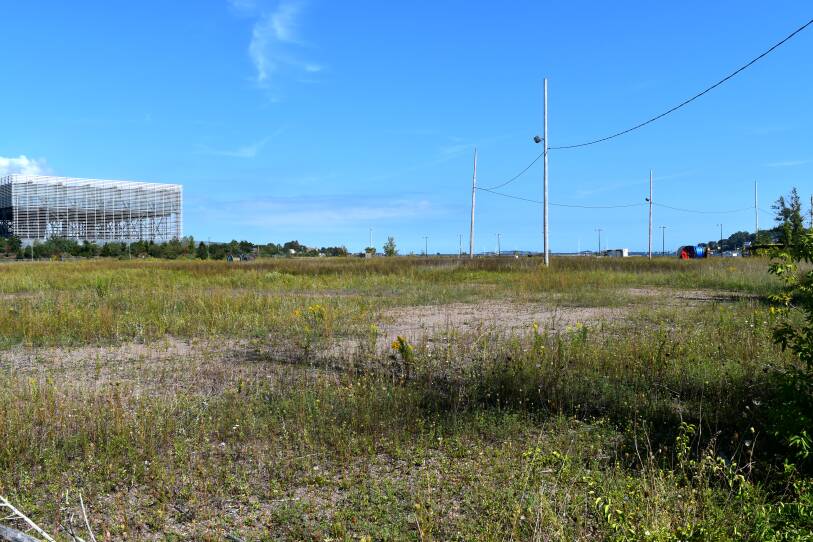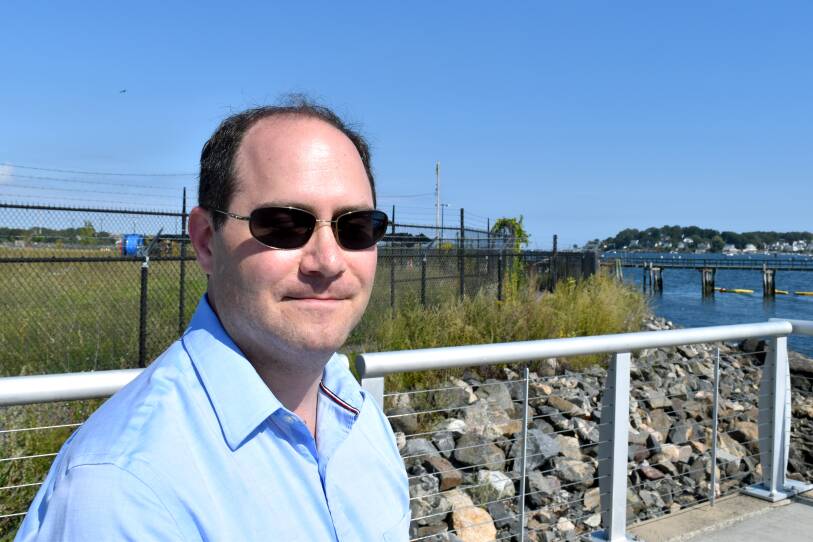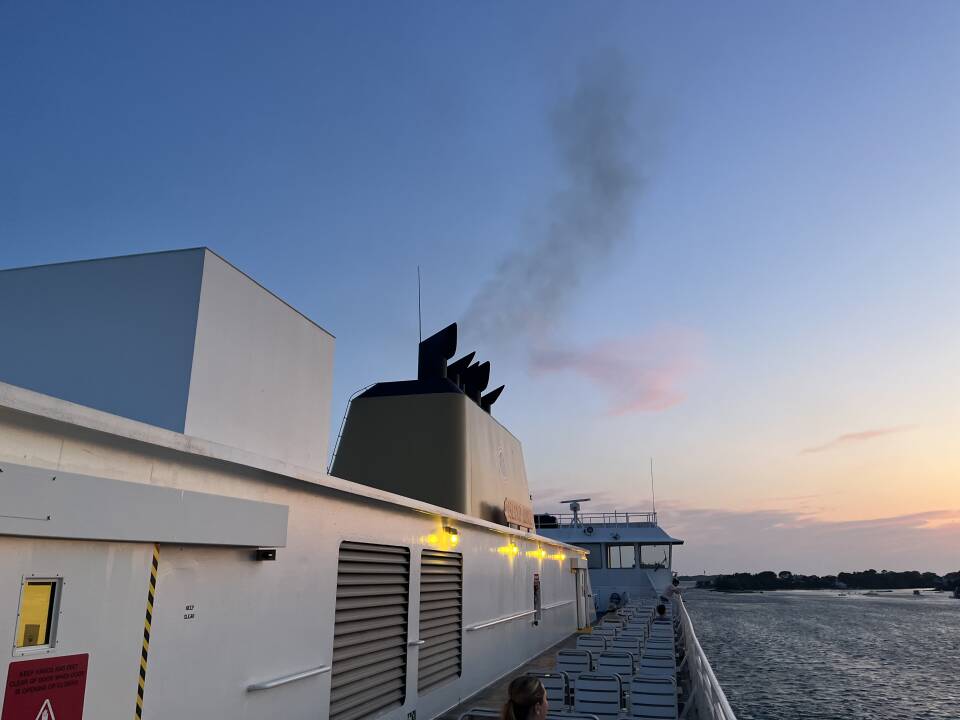Waves gently lapped against a dock at the Salem ferry terminal, as Bonnie Bain, executive director of Salem Alliance for the Environment, stood near the shore line.
She pointed through a chain link fence at a 42-acre parcel of land. It looks like nothing but an expanse of unkempt grass.
But to Bain and others in Salem, this land represented potential — at least until recently.
“We were going to have a wind marshaling facility here,” she said with a note of sadness.
Early last year, Salem partnered with a state economic development agency and the maritime transportation company Crowley Wind Services to build a major wind port. The plan was to serve the growing offshore wind industry: Parts for the huge turbines would come in, be pre-assembled in the facility and sent out into the ocean for new offshore wind farms.
They were planning for an industry that was expected to boom in the coming years.
“We would be acting as a port that supported these projects that were out in the ocean — these projects that are going to fuel our homes,” she said.
But for now, at least, Salem’s project is on hold. In recent months, the Trump administration has declared war on the offshore wind industry. The administration has issued stop-work orders for projects already in progress, including one off Rhode Island that’s 80% complete, although that order was overturned by the courts.

The administration also terminated hundreds of millions of dollars in federal grants to help build out the infrastructure to support wind farms, including a $34 million federal grant awarded for the development of the Salem port. The city’s trying to move forward on a scaled-back version of the project and hope the tides turn on the industry.
“I am heartbroken and I am depleted,” Bain said. And, despite her calm demeanor, she said, “I’m actually very angry.”
Massachusetts has set a goal of producing 80% of its electricity with wind and other clean energy sources by 2050 — and, to Bain, it was special to think that Salem would be doing its part to support that clean energy transition. But the project means more than just clean power.
“It’s a setback for the community,” said Barbara Kelley, who lives just up the road from the planned port development.
She was part of the team that negotiated a package of community benefits with the project’s developer.
“We wanted to make sure that there was an ability to have workers, there was an ability to teach people how to work in a place like that,” Kelley said. “There was ability to have some low-cost housing or rental subsidies for people who could come here to work.”
Now, though, she worries that not only the project, but the benefits they worked to secure, could be lost. The canceled $34 million in federal grants was just a fraction of the project’s expected price tag, but it’s still significant. And even if they had that money, it’s not clear when — or if — new offshore wind farms will be built.
President Donald Trump has frequently been a vocal critic of the industry.
“The wind doesn’t blow. Those big windmills are so pathetic and so bad, so expensive to operate,” Trump said as he addressed the United Nations last month. “And they have to be rebuilt all the time, and they start to rust and rot. Most expensive energy ever conceived.”
To Amber Hewett, who focuses on the industry for the National Wildlife Federation, offshore wind is still a good idea.
“It didn’t become a bad idea because Donald Trump didn’t like it,” Hewett said. “This is still worth pursuing as is demonstrated by how much success it has seen elsewhere in the world.”
A new study out this week says wind and solar power generation this year outpaced coal power for the first time, and exceeded the global growth in energy demand.
“Understandably, it is harder for a city like Salem to take this on without the guarantee that the industry will be there to use the facility,” Hewett said.
But she hopes the port project will press ahead anyway.
That’s the idea, says Salem Mayor Dominick Pangallo: To make progress while waiting for the the offshore wind industry to get jumpstarted.
“So that it’s prepared to serve the industry when the industry is ready for those projects to roll out again,” Pangallo said.
For now, he said, the work may just be scaled back.

“Initially, it was conceived to be a two-berth port,” Pangallo said. “We have one berth there now, so the idea was to construct a second so you could have a vessel bringing in components while another vessel was taking the completed turbines out. It may be a single berth port for a while and we just phase it over time.”
Bain said she’s trying to stay optimistic about the port’s future.
“Most folks here think that it’ll still be wind one day, if the federal winds shift,” Bain said.
Asked if she’s one of those people, Bain let out a long sigh.
“Today I’m not feeling that optimistic about the way things are headed in our country in general,” she said. “Things like wind, which shouldn’t be political, are politicized in a way that prevents us from having progress in our energy infrastructure. And I just — I don’t see that shifting anytime soon.”









